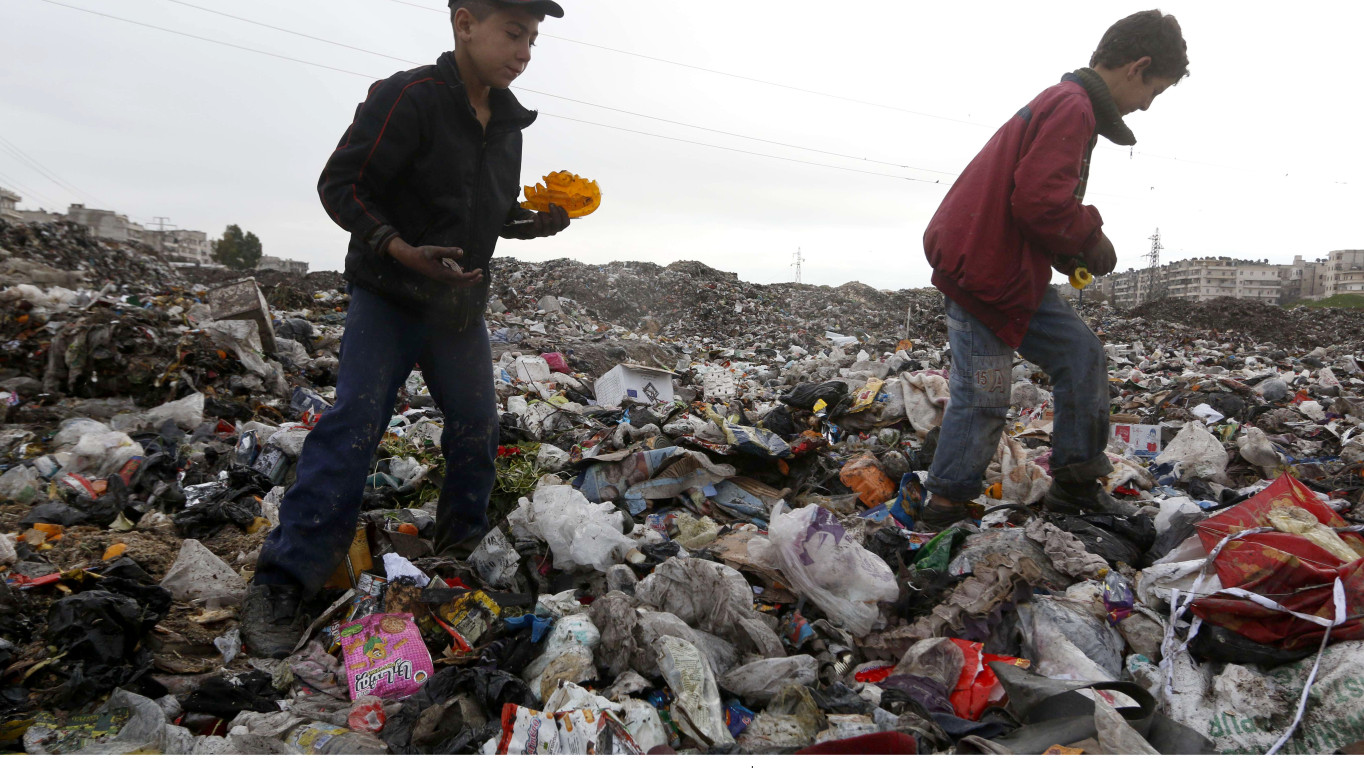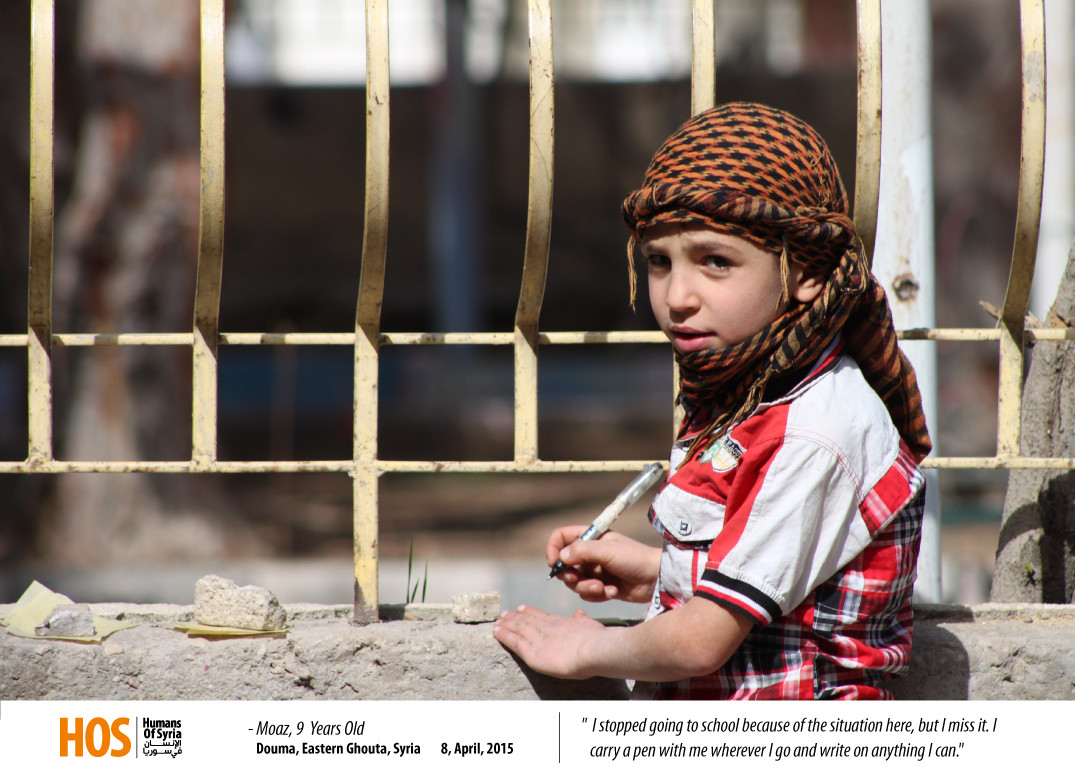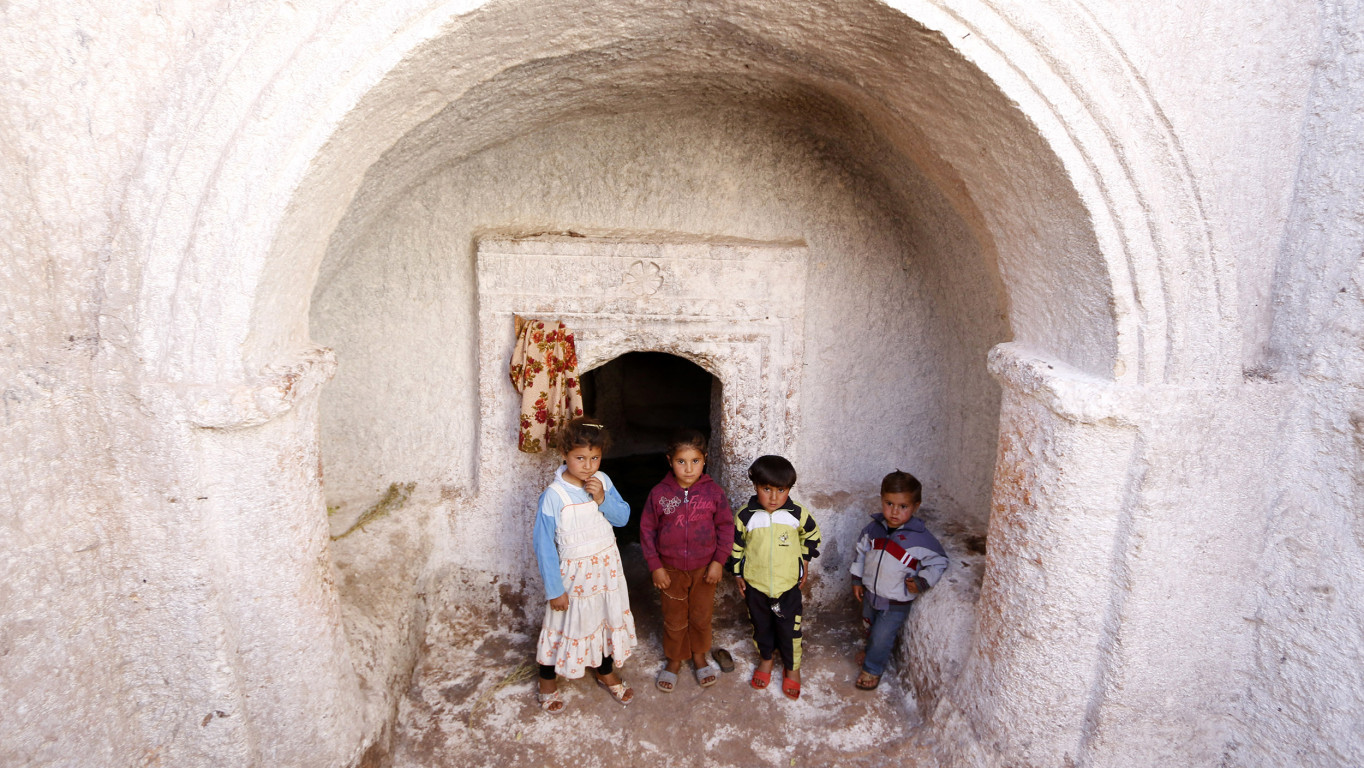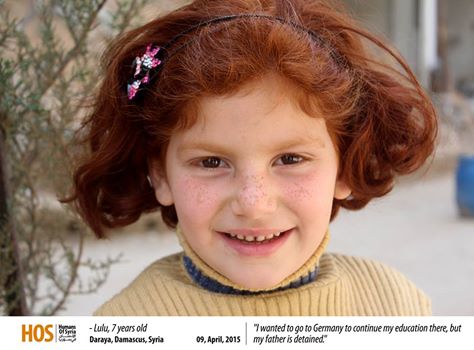When a Syrian protester was asked why she was demonstrating in 2011, she answered: I wanted to create a new future for my daughter, so she wouldn’t have to live in my present. The failure of the uprising and the brutality of the regime’s is only accentuated when four years later one Syrian child said: “When I grow up and have children of my own, I will not make them live like me. I will make their life clean, unlike mine.”
The child, Muhammad (12-years-old), and his friend, Abdallah (12-years-old), are from al-Kallasah neighborhood in Aleppo. They work in collecting refuse plastic, copper and aluminum from garbage dumps, and selling it to merchants, for an income of less than one US dollars per day.

The quote from Muhammad seem like a shattering of any hope for a better future, the Syrian mother had in 2011. Syria’s children have paid the highest price for today’s conflict. But how are they coping? what are they doing and where?
Muaz (9-years-old), has been trapped with his family in besieged Douma, Damascus’s countryside, for more than two years. He can no longer go to school, but he carries his pen with him wherever he goes. “I want to write my name on anything I can write on. I want to write my father’s name who has been detained by the regime. I want to write the name of my brother who was killed two years ago,” Muaz says. His pen becomes his only tool of resistance, his shield so as not to forget all that he was taught at school. His carrying of that pen, preserves even symbolically his dream to go back to his school that he “misses very much.”

The terrible conditions doesn’t even allow Hassan (12-years-old) to think of school: “I don’t have time to learn. Schools are open for some days, but closed on many others, and it is very expensive compared to what I make from work,” he says. Hassan chose to sell cigarettes in the town’s market and sweets at school entrances. Abdul Kader (12-years-old) from Aleppo, is no better off, however. He was forced to quit school in April 2014 after a barrel bomb shattered the building. He decided to go and work in a car repair shop.
The tragic stories of Syria’s children are abound. Like the four children whose father died in the battles in Maarrat al-Numan (near Idlib) and were left to live with their grandmother in a shack, always in fear of the next bomb or the next battle. Or the father who has to take his 2-years-old son with him wherever he goes despite the elevated danger, as he can’t leave him alone.

The war has also forced many children to grow up too fast, and to understand the painful concepts such as detention, death, bombardment and destruction. A 7-years-old girl had this to say to one of the photographers in besieged Darayya:
Lulu: Hi
Photographer: Hi. Can I take a photo of you?
Lulu: Yes, but only take a photo of my face, not of the destruction behind me. I don’t like this destruction.
Photographer: Okay. How beautiful you are!
Lulu: Yes, I am beautiful. I wanted to go to Germany to go back to school. But my dad is in prison, and I love him alot, and I don’t want to leave without him.
Photographer: What’s your name?
Lulu: My father used to call me Lulu, but I won’t tell you my real name; I’m afraid of being imprisoned by the regime.

Mahmoud (13-years-old), besieged in the town of Masraba in Damascus’s countryside, sums up this broken childhood by saying: “If was to gather all the wood I cut myself since the beginning of siege, it would make a forest.”



